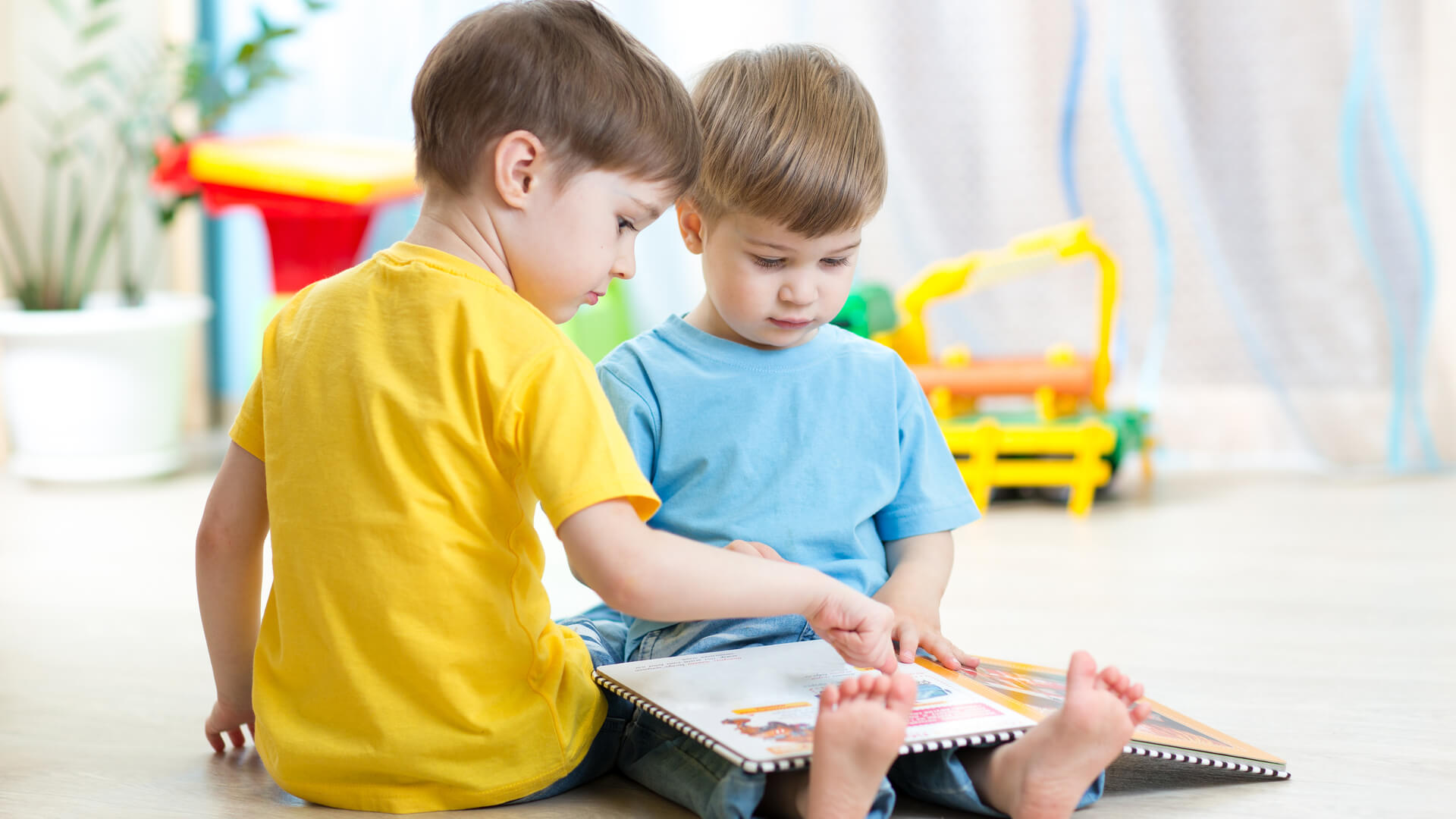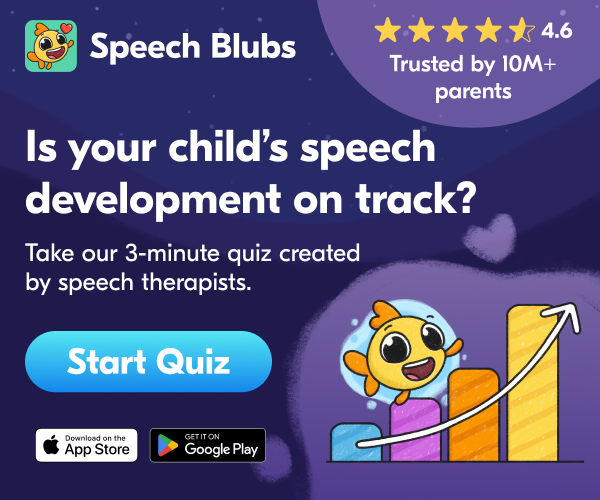Is My Child Talking Enough?
In This Article
- When Do Babies Say Their First Words?
- Do Toys Help with Speech Development?
- How Toddlers Talk
- Keep the Conversation Flowing
All children’s speech and language development are different, and there are no concrete deadlines for growth.
Although major milestones like crawling, walking, and talking should happen around a certain age, developmental delays do occur in some children without any signifying underlying reason. Even more reassuring, you can easily address most of these setbacks and your child can go on to live a perfectly healthy life.
How do you know when it’s best to seek professional advice? Take a look at these common language development milestones. A child might not be as talkative as another, but that doesn’t mean they aren’t still learning. If you do realize your little one is behind, there are ways you can start helping them acquire language faster.
When Do Babies Say Their First Words?
Crying is the universal baby language. More than that, it’s their primary tool for survival. Whether they’re hungry, tired, or just need some love and affection, babies use crying to connect and communicate with their caretakers.
But an infant’s mind is constantly evolving, and they are quick to pick up on all the sensory input around them. This includes voices, which they’ll start to project between the ages of 4 and 6-months-old.
While vocalizations are usually one or two-syllable sounds, they won’t hold any real meaning until around the time your baby is 1-year-old. Then, they’ll start to use sounds with more purpose, eventually uttering their first word, like ‘mama’ or ‘dada.’
Some children don’t achieve this milestone on time, so parents naturally worry about their speech and language development. It’s important to look more at how a baby responds rather than how she reacts at such a young age. Do they still look at you when you speak to them or turn their head toward loud sounds?
If not, then they should have an appointment with the pediatrician to rule out any hearing impairments that would later impact their language development. If you talk to your doctor about your baby’s speech timeline, they can give you a good idea of when to expect to start hearing words form.
Do Toys Help with Speech Development?
There are many toys and products designed to stimulate language development and speech. Introducing these toys to your child while they’re young can promote a strong vocabulary and reduce any noticeable struggles with pronunciation. Keep in mind that all babies babble and don’t pronounce words correctly. If you notice, however, that your child aged 4 and up still has issues pronouncing basic words, speech therapy could be beneficial.
Paying for speech therapy is a concern some parents have, and it’s understandable that they’re worried they won’t be able to pay for services their child needs. One thing you can consider is exploring financing options online, like a personal loan. This can be used to pay off debts that are draining your budget or be put toward investing in things your child needs, like a speech therapist, speech learning app, and language toys.
How Toddlers Talk
From ages 2 and up, a toddler’s brain works differently. They learn how to form their own short sentences – typically no more than two or two and a half words. But, they’re so packed with personality. At this age, your toddler isn’t just learning abstract words, as they are discovering things about themselves and the world.
From colors to body parts, food, and animals, a kid’s environment and experiences shape their basic vocabulary. They are not likely to talk about abstract concepts like emotions, so they’re still more likely to throw a tantrum or cry when they’re stressed, frustrated, or tired. Rather than say, “I don’t want this,” they’ll just push something away or say “no.”
At 2 and 3-years-old, kids will mostly speak about what they see and know. For example, if they’re playing with a toy cat, they’re likely to chant, “cat!” as they show it to you, and they may meow because they’ve learned that’s what cats do.
A fun activity to do together is to play with various animal sounds in different tones and pitches. Pretend to be an angry kitty, a happy chicken, or a sad dog. Learning how to modulate their vocal range also helps preschoolers express their own feelings more accurately.
Keep the Conversation Flowing
By the time they’re 3, a preschooler will know up to 250 words. They might not use them all the time, but they’ll respond when they’re spoken to and show you that they understand what you’re saying in their own way. One of the best ways you can teach your baby to talk is to speak to them all the time.
Read things out loud, narrate what you’re doing and point out different things when you take a walk together. When kids learn to talk they might not be able to express all their thoughts in words, but babies and children are always listening. They’re always going to copy what they see, so if you tend to talk a lot around them, children will begin trying to speak more, too.
So, while language milestones are a good thing to keep in mind, don’t let them overwhelm you. If you notice your child struggling with speech sounds or language skills, contact your local speech and language pathologist to make an appointment for an evaluation.


